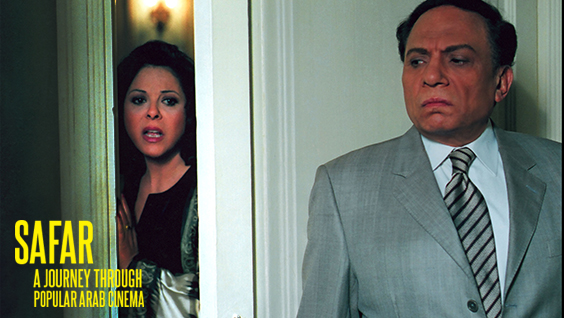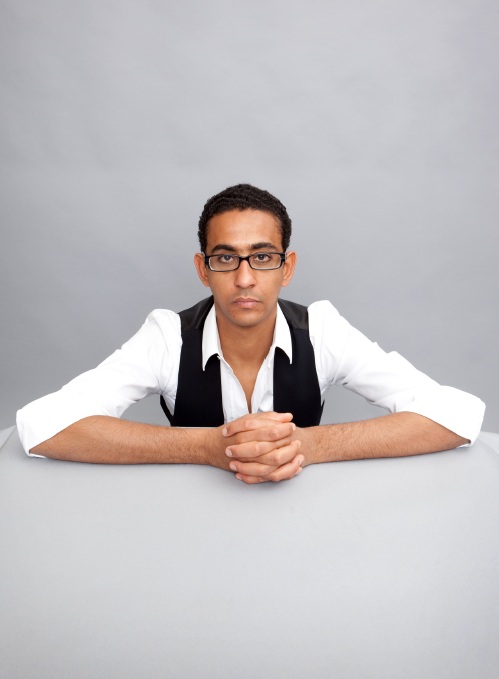Exclusive: An Interview with Marwan Hamed
An Interview with Marwan Hamed
By Omar Kholeif, Safar Curator

What do you think are the challenges facing contemporary filmmakers in Egypt and the Arab region more widely?
We face many challenges. The main challenge is a funding crisis which directly affects the level of production. When you have an active market producers are more open to gambling on higher-risk projects. As things stand at the moment, producers want to play it safe; to secure box-office returns and make their money back. This means as an industry we are producing less so that the risks across the board are lower. Producers usually only finance mainstream films and comedies – and even then not many. You mainly see American blockbusters in Egyptian cinemas nowadays.
Why do you think that popular Egyptian cinema rarely gets theatrical distribution in the UK?
I think there are two main reasons: first, our films do not necessarily travel well. Usually Arab films are dialogue-based and reading subtitles can diminish the audience’s enjoyment of a film. Although film ought to be expressed more visually, I think we’ve adopted the use of dialogue from television. The second reason is marketing. A lot of Egyptian films have been great and had the potential to be exported but they were not marketed well and therefore lost out on their chance to be distributed internationally.
What do you think makes film production in the so-called Arab region so unique?
What makes us unique is our culture, history, our people and our heritage. Just put the camera in any street in Cairo and there is a story to be shot.
Growing up, what were the films that inspired you the most? Did you have a specific mentor?
I was inspired by many films: The Godfather; Taxi Driver; In the Mood for Love; Apocalypse Now; the works of [Youssef] Chahine and Atef El-Tayeb. And I do have a mentor – Sherif Arafa. I worked as his assistant for 8 years and I owe him a great deal.
We are of course showcasing The Yacoubian Building. What compelled you to direct this film?
One great thing about The Yacoubian Building for me is that it was about amazing characters – from a dramatic point of view, very complex characters. At the same time they were treated in a very non-judgemental way which pushes their humanity to very high levels. My favourite moments in the film, and indeed the novel, are those moments that express human weakness.
What’s next, and do you plan on working with your father, Wahid Hamed, again (who scripted The Yacoubian Building)?
I have a lot of projects in the pipeline but still haven’t picked the next one. I hope to work with my father again.
Marwan Hamed is the multi-award-winning director of The Yacoubian Building, screening as part of Safar: A Journey Through Popular Arab Cinema on Thursday 27 September, 18:30. Join in the discussion after the screening when Marwan Hamed will be in attendance. Click here for details.
 Marwan Hamed Bio
Marwan Hamed Bio
Born in 1977, Marwan Hamed graduated from the Cairo Film Institute in 1999. He apprenticed as assistant director to many renowned Egyptian filmmakers including Sherif Arafa, director of Terrorism and the Kebab, as well as directing numerous commercials.
His first feature film, released in 2006 was The Yacoubian Building based on the international bestseller under the same name by Alaa Al Aswany. The film was considered the most expensive Egyptian film ever made with an all-star Egyptian cast including the biggest Arab star Adel Imam. Locally, the film maintained poll position at the top of the Egyptian box office throughout the summer. Internationally, the film reached 200,000 admissions in France and was screened at many international film festivals including Berlin Film Festival (panorama section). This critically acclaimed film is considered one of the 100 most important Egyptian films and has won several awards including the best New Narrative Filmmaker Award at the Tribeca Film Festival 2006.
In 2009 his second feature Ibrahim Labyad was released; a film set in the underground world of Cairo, it follows the story of a boy who witnesses the murder of his father by a gang of brutal drug dealers. This violent and bloody film was inspired by real events.
Marwan’s latest work is a collaboration by 10 Egyptian directors; 18 Days is a collection of 10 short films created in direct response to the 25 January 2011 revolution in Egypt. 18 Days premiered at the 2011 Cannes Film Festival in the official selection for special screenings.
Marwan is one of the founders of Lighthouse Films, a pioneer production company with a young creative feel specialised in all parts of media production.
